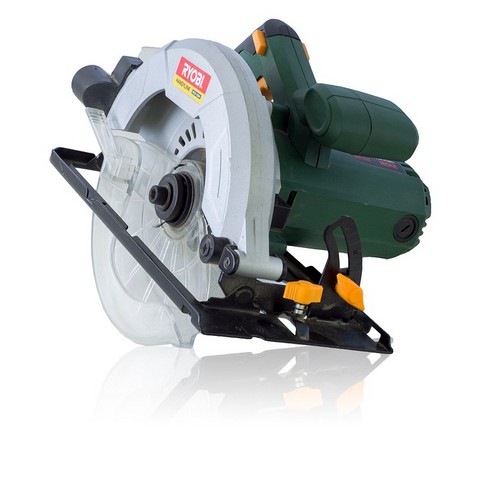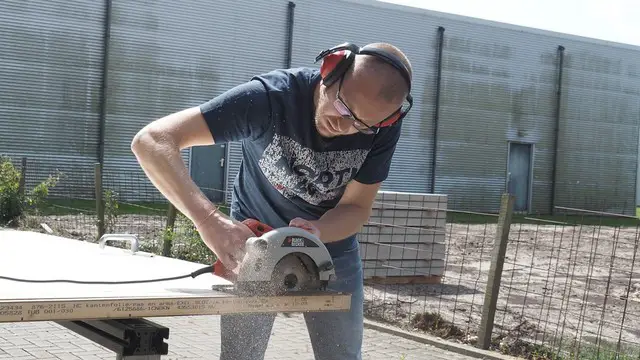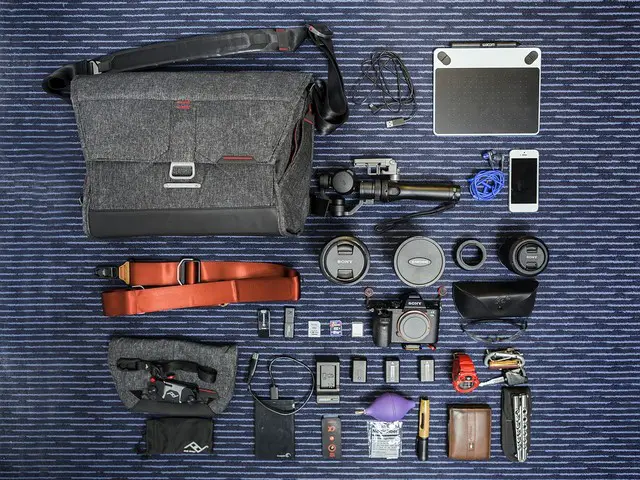If you’re a contractor, a dedicated DIY-er or just someone who loves power tools and adding new tools to your collection all the time, you’re likely not new to the Ridgid vs Ryobi debate!
An argument that will probably live for as long as the brands live, whether to pick a Ridgid or Ryobi offering is quite a valid one, given that both brands are from extremely popular manufacturers of power tools, with quite a fan base around the world swearing by both—so we absolutely don’t blame you for the question or confusion.
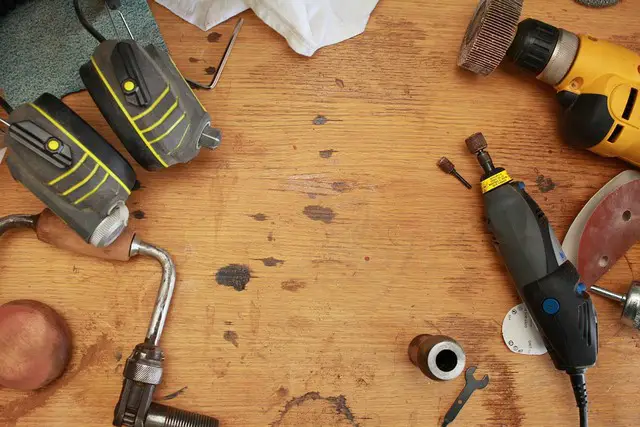
Is Rigid and Ryobi The Same Company?
The fact that both brands have the same parent company (TTI), with headquarters in Hong Kong, and sell the same types of tools (entry to mid-level power tools) to the same target audience (first-time buyers, general home use and contractors) also doesn’t make life any easier!
However, though both brands are power-tool manufacturers, there are quite a few considerable differences between both brands that could make one seem more appealing than the other.
To make the decision easier, here’s a low down on the differences between both brands and why one brand may just have a slight edge over the other.
Read on!
Ryobi and Ridgid—A Brief Background Story!
Both Ridgid and Ryobi are long running, well established companies.
Ridgid hailing back to 1923 and Ryobi setting up a little later in 1943.
Who Makes Ridgid Tools?
Let’s start with Ridgid, an all-American power-tool brand with a history that can be traced all the way back to long before it could be known as a cordless power tool brand!
Among the oldest power-tool brands, Ridgid is especially popular for tools meant for use in construction, plumbing, pipe-fitting and HVAC trades, as well as its unique red-pipe wrenches.
In addition to power tools, the brand also makes and sells many hundreds of tools of many varied types.
Initially headquartered in North Ridgeville, Ohio, the company shifted base to Elyria in 1943, where it eventually became an Emerson-Electric subsidiary 23 years later.
Ridgid tools are loved by handymen and women around the world for their ease of use and durability.
Who Makes Ryobi Tools?
Ryobi, on the other hand, is a Japanese brand that gained popularity for its gardening equipment, signature high-quality green products and entry-level power tools. Initially known as Ryobi Seisakusho Co. Ltd, Ryobi started with the sale of die-cast products. The Ryobi range may be considered more in parallel with Stanley Black & Decker.
18 years later, the company started the manufacture of offset printing presses, moving to the manufacture of power tools only by 1968. In 1973, the company officially changed its name to a shorter version of its original—Ryobi.
Today, Ryobi manufactures electronics, automobile components and components necessary to the telecommunications industry, while also selling power tools, hardware and printing equipment.
Ryobi made its entry into the United States in 1985 as Ryobi Die Casting (USA) Inc., and Ryobi Finance Corporation, located in Indiana and Chicago, respectively. The brand has a global presence, with 12 manufacturing facilities spread across 6 countries.
As mentioned earlier, both company’s tools are manufactured by the Hong-Kong-headquartered Techtronic Industries.
Ridgid vs Ryobi: a Comparison
Here’s a comparison of both brands based on a few parameters.
Quality
While both Ridgid and Ryobi offer high-quality products, Ridgid has more experience in the field and is, therefore, a more established name.
Ridgid’s signature red tools are manufactured by the US-based Emerson, whereas the orange line is manufactured by the Chinese TTI. The former, especially, has many professionals singing its praises, for the durability, strength and ease of use.
That being said, Ryobi has also made its name in the industry as an affordable brand for enthusiasts, homeowners and DIY-ers. However, despite being targeted at these groups and designed to be a consumer brand, Ryobi tools are strong and efficient enough for them to have also earned many fans who are professionals.
Therefore, when it comes down to quality, it depends on who’s using the tools—homeowners may be satisfied with a different level of quality than contractors. Ryobi may have a slight edge here, though, since it’s meant for homeowners but is also suited to professionals.
Price and Value Offered
Price is a huge influencing factor when it comes to shopping and power tools are no exception! Both Ryobi and Ridgid offer excellent quality in their products, but Ryobi tools work out to be cheaper than Ridgid’s offerings in the same category.
Which one offers better value may also depend on what you’re using the tools for and how often—if you’re only going to use the tool to occasionally fix the roof or a pipe, or if you’re just beginning your DIY journey, Ryobi may seem like the better-priced option.
Additionally, Ridgid tools are priced higher because they’re engineered for professional-level work, which means they can withstand tough jobs and longer hours.
Therefore, if you’re a professional or a dedicated DIY enthusiast who’s going to be using your power tools more often, Ridgid may seem worth the investment, with the ability to function without issues and perform at the highest possible level despite the heavy workload.
At the very basic level, Ryobi is much cheaper than Ridgid, but that, in no way, means that the value offered is also lesser. Ryobi offers great value if you’re a beginner; Ridgid is the best option if you’re a professional.
Which Brand Offers the Best Cordless Power Tools?
If you want quality tools that will serve you well through years of use, then choose Ridgid. However, if you don’t mind spending less, buy from Ryobi.
The bottom line here is that both brands offer high-quality tools, so whichever suits your needs is up to you.
Warranty
When it comes down to warranty, Ridgid is the hands-down winner with its industry-best lifetime service agreement.
Owners of Ridgid tools (corded, cordless tools, bench and stationary power tools, tile saws, hammer drills and pneumatic tools) are entitled to free parts (gears, switches, chucks, batteries and the like) and free service on purchasing the product and registering it within 90 days of purchase.
You can also reach out to the brand through their helpline and get immediate service under the warranty.
Ryobi doesn’t even come a close second with its 3-year limited warranty deal and 90-day exchange policy.
Any tools that start acting up within 90 days from purchase, due to faulty workmanship or construction, can be replaced or repaired.
In some cases, free service, repair and replacement are also offered, post the 90 days, at authorized service centers.
Product Selection Between These 2 Power Tool Companies
A varied, wide selection of products means a higher possibility of finding exactly what you need. Of the two brands, Ryobi is the winner in the numbers game.
The brand offers many 18V ONE+ outdoor power tools and accessories and hundreds of power tools such as work lights, drills, foggers, blowers, weed eaters, 3/8 and 1/2 inch impact wrenches and the like.
The brand also offers many a combo kit, with the possibility of choosing any of the 13 drills and drivers from the product portfolio to be in the kit, in addition to chemical sprayers, plumbing, woodworking, vacuums and gardening equipment.
Ryobi’s diverse portfolio of accessories and tools, in addition to presenting the higher probability of finding exactly what you need, also saves you quite a bit of money as the tools, batteries and accessories are interchangeable and compatible with each other.
You also won’t have to deal with the inconvenient hassle of multiple batteries and chargers for different items.
Ridgid, on the other hand, offers around 30 types of 18V cordless tools, such as impact drivers and impact wrenches, grinders, radios, blowers, rotary hammers, hammer drills, fans, dry and wet vacuums, chemical sprayers, nailers and the like.
When it comes to cordless power tools, Ridgid emerges the victor, with over 40 different 18V power tools, including cordless routers, saws, impact drivers, rotary hammers, drills, angle grinders and other power tools.
However, despite the more limited product catalog, Ridgid still has quite a few impressive choices. If you’re looking for variety, though, Ryobi is the candy store you should be considering.
Which One to Pick?
While you can’t go wrong with choosing either brand, one is better for beginners and the other for professionals.
Ryobi is an excellent choice if you’re just taking your baby steps into woodworking, DIY, hobbies or are looking for basic tools to help you with the occasional house repairs.
On the other hand, Ridgid’s tools are professional grade, designed to last long and stay tough.
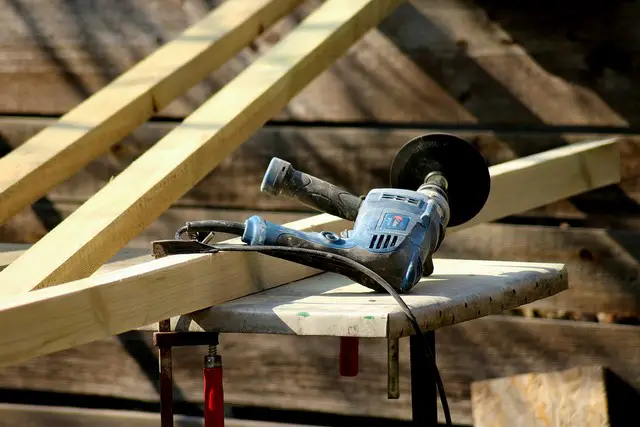
Therefore, if you’re looking for exclusively professional-grade tools, stick with Ridgid; if you’re looking for entry-level tools that can also stand the test of a few professional-grade jobs, Ryobi is the brand to be buying!
The Bottom Line
You now know the differences between these two fantastic brands, so hopefully, picking one out for your needs shouldn’t be as challenging! In short, Ryobi supply affordable tools, meant for beginners, with a 3-year limited warranty, whereas Ridgid cost a little extra money, and are meant for professionals, with a lifetime service agreement.
Both brands offer excellent products, but products that are suited to different levels of work, (don’t forget that lifetime warranty though!). Which one you pick is based solely on your needs, wants and of course, your budget, so take your pick!

